When it’s time to feed your baby, you may notice there is a little pushback. Your baby may spit a little bit of the food out, and you may not think anything of it. It’s a common tactic, and you don’t even need to be a parent to know that babies like to spit out their food sometimes.
However, if your baby is doing it all the time, you may wonder why. Is it a sign there is something worse going on? Or is it a harmless action they’ll grow out of? Let’s look and see.
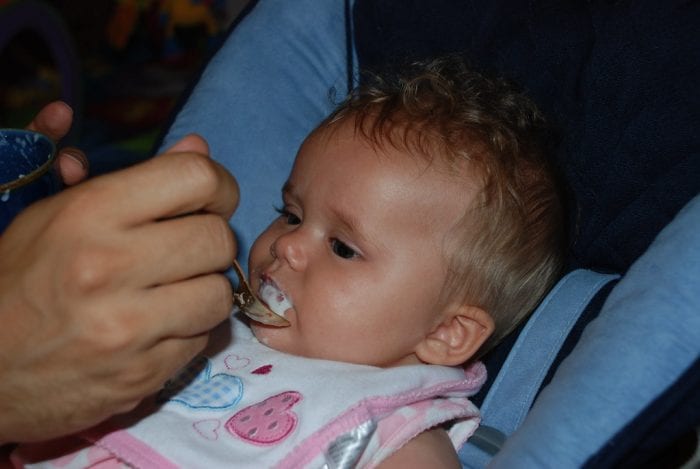
Your Baby May Be Too Young
One reason your baby may be spitting up food is that they’re young and they’re still learning to eat food. If your baby is 8-10 months, they’re just learning how to eat foods, and they may still have a hard time with them. At around 10-14 months, they’ll learn to eat foods better without spitting them out, usually. There are cases where they may still do it, however. Check your baby’s age and see if they are in the ballpark of the listed ages.
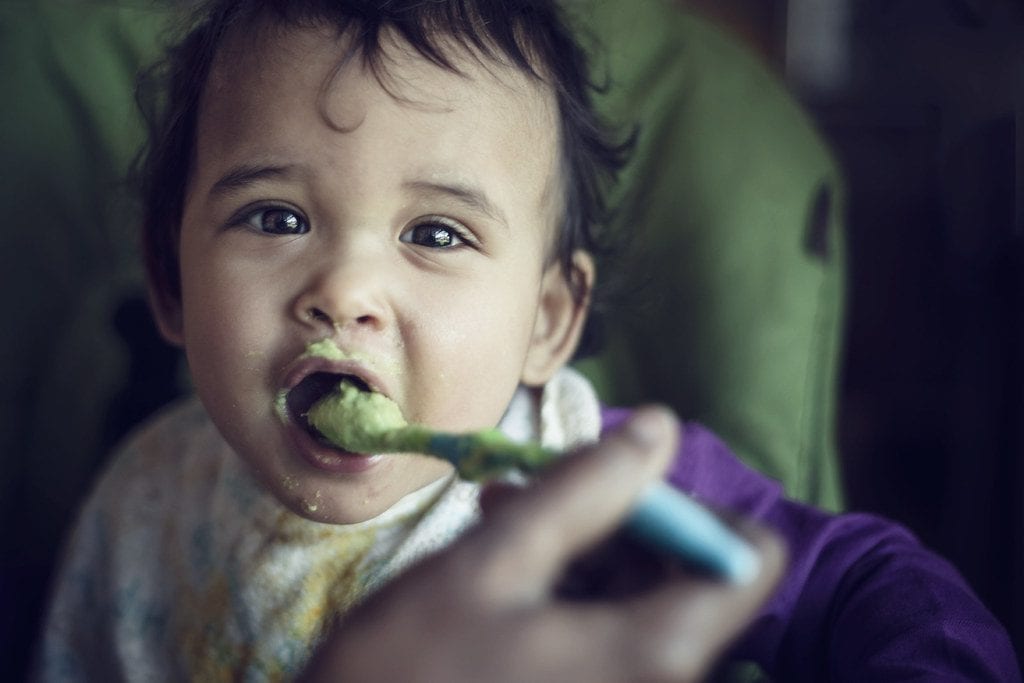
They May Have Poor Oral Motor Skills
Oral motor skills are when a baby is able to use the mouth muscles well. A baby uses their jaw, cheeks, lips, and tongue to eat food, and for a baby, using all of these in harmony is a task. These are all muscles your toddler is learning to flex, after all. When they are unable to do so, the food just tumbles out. This is the most common reason why a baby may be spitting out food, and it’s usually nothing for you to worry about.
With time, their oral motor skills will be able to improve. However, if they don’t, you may want to take them to see the doctor if things are getting too bad and you don’t see any signs of improvement.
Sensory Processing Troubles
Babies are sensitive to certain textures and flavors. If the baby is sensitive to a certain type of food, they may end up spitting it out as a result. Sometimes, it may be because they just don’t like the food, or sometimes, they haven’t developed the senses for it. Either way, you may want to wait on certain foods if they just seem to spit it out. Otherwise, you may be in for a world of trouble. Over time, your baby should learn to tolerate foods better.
The Food Is Too Big
Sometimes, it may be due to the fact that the piece of food you have is too big and the baby is unable to chew it all. You may want to cut that food up or mash it. If the spitting stops, you’ve figured out the reason. Don’t put anything in their mouth that they may not be able to chew.
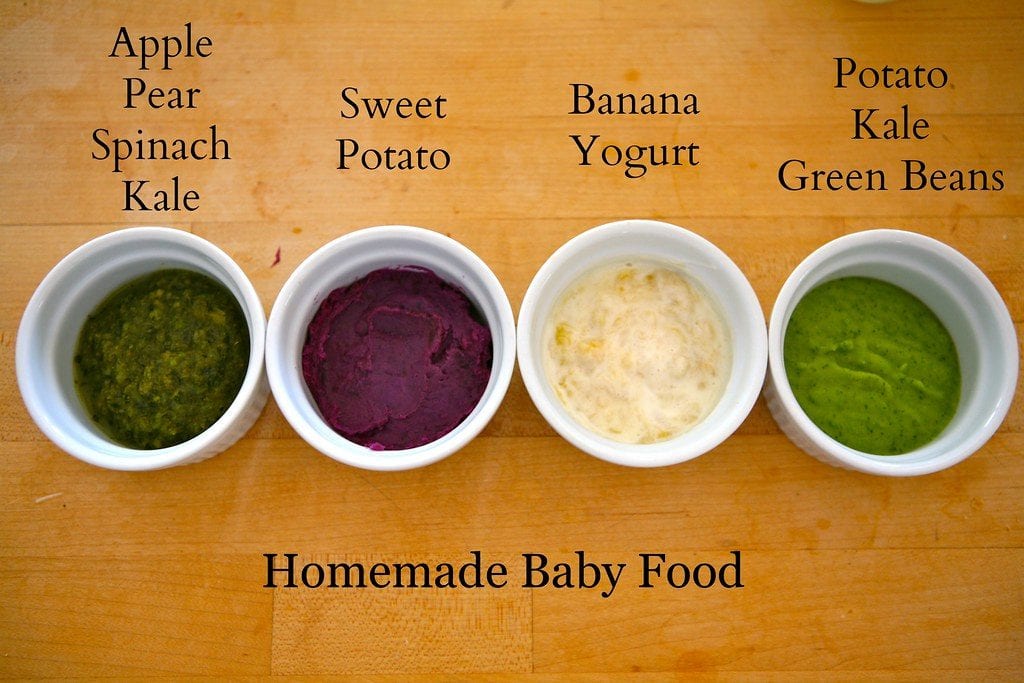
They May Be Doing It For Attention
Sometimes, it’s not because of any mysterious reason. It’s not because your baby is sensitive to the food or is having a hard time with chewing it. Sometimes, they do it just for attention. In a case like this, it’s important that you don’t give them the attention they grave, or they may end up spitting out more food, leading to one frustrated parent! Babies like emotional response from the parent, and they may find it funny.
How You Can Help
There are some ways you can help if your baby is not keeping the food in. Here are a few ways.
Don’t Get Mad
Getting angry at your child, especially over something you’re unable to control, may end up with a traumatized child and you feeling defeated for losing your cool. If you feel your patience falling, take a break and come back with a cooler head. Don’t yell or get angry at your baby.
Consider Feeding Therapy
Seeing a therapist for your baby spitting out food may be a good thing if you suspect there is more to it than what meets the eye. A feeding therapist may be able to help your baby chew properly, and figure out if there is something else to your baby being unable to eat.
Brush The Gums
Use a toothbrush and regularly brush the gums and the tongue. This can help strengthen the baby’s mouth muscles, making it easier for your baby to chew food and not spit it out. Regular brushing is also a good way to get your baby into brushing and flossing later on.
Teething Toys
If you haven’t bought your baby teething toys, now is the time for you to do so. Teething toys do more than help relieve the pain of teething; they can also help strengthen the muscles in your baby’s mouth and allow them to chew better. If it’s an oral problem, teething toys may be able to help your little one.
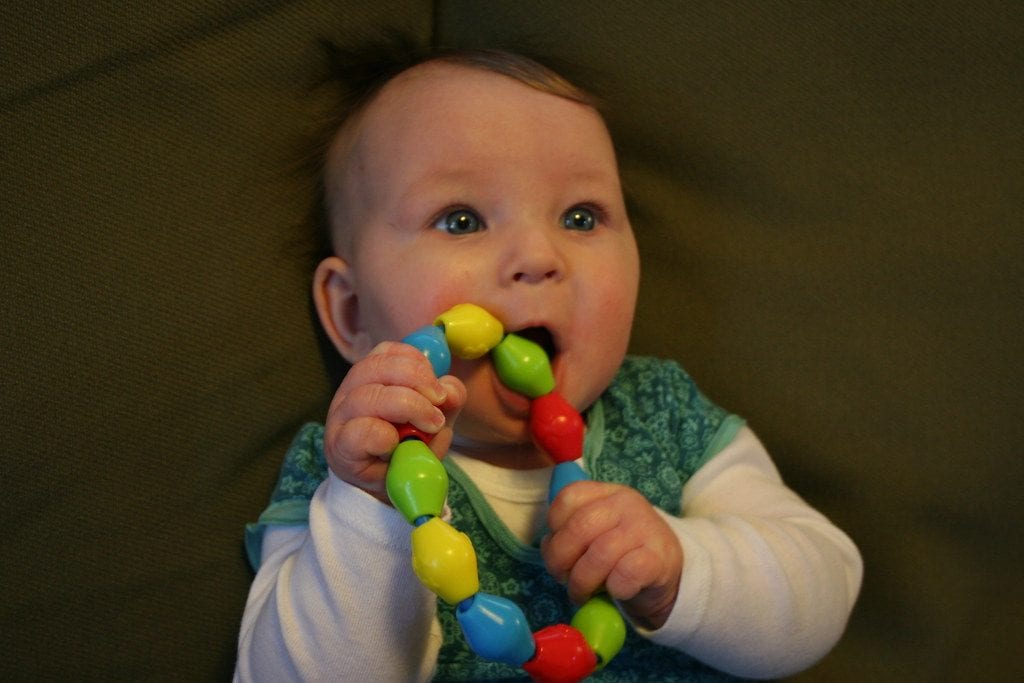
Try Pushing it Back in
If your baby spits a little bit of food back out, try gently, but firmly pushing it back in. Give them some liquids to help them keep the food down. Make sure the food is chewed up to avoid any choking hazard. Sometimes, pushing the food back in can be the simplest step.
Conclusion
It can be frustrating having a baby who won’t keep the food in their mouth, but you must remember that babies aren’t like you and me. Their muscles aren’t fully developed and they are learning to eat food. A baby doesn’t automatically gain the complete ability to eat food overnight; it’s a process of trial and error.
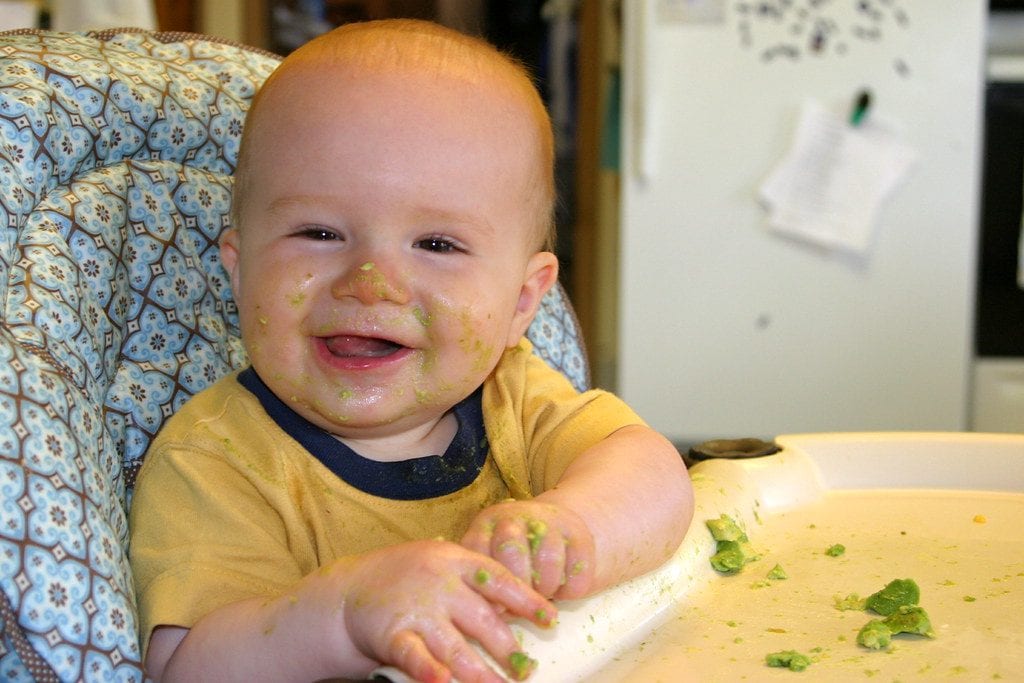
Chances are, it’s nothing for you to worry about, but if you suspect that something is wrong with your baby, it may be worth it to go to a doctor and see what you can do. With that said, don’t worry about it too much, and remember to bring some extra wipes. Feeding your baby, even if they don’t spit it out, is always a little messy.
Babies Spitting Out Food FAQs
Why is my baby spit out food?
Babies spitting out food is because of ‘tongue-thrust reflex’. It is normal, so try not to worry if your baby spits back food.
Is it OK to feed the baby after spitting up?
Even if your child spits up after every feeding, it is not usually an issue.
What can I do to prevent my baby from spitting up?
No, there is none. However, you can try to minimize it somehow. An overly full belly is a significant cause of reflux. Therefore, avoid overfeeding your baby.
How much spit up is normal for a newborn?
A considerable percentage of infants under three months will spit up milk or food probably three times a day. It is perfectly normal for them to be spitting up as regularly as 10 or 12 times.
How much spit up is normal?
Half of all 0-3-month-old babies spitting out food do that at least once per day. Spitting up usually peaks in these toddlers’ 2-4 months of age.
Can spit up be forceful?
Spitting up is not considered as vomiting. Vomiting is forceful while spitting up usually occurs only for a short period after feeding.
How can you tell the difference between spit-up and vomit?
Spitting up is the natural flow of a baby’s tummy contents through the mouth, possibly happens along with a burp. Vomiting, on the other hand, occurs when the flow is forceful and shooting out inches.
When should I call the doctor about spitting up?
Call a doctor or pediatrician when there is blood in the baby’s spit-up. If there is Bile (green color) in it as well.
Why does my baby’s spit up smell sour?
The vomited milk or babies spitting out food might smell curdled because it has mixed with stomach acid.
When should I be concerned about baby spit up?
Consider the frequency of the spit ups. Spit up after every feeding is abnormal.
Babies Spitting Out Food Other Resources
https://yourkidstable.com/baby-spits-out-food/
https://solidstarts.com/baby-spitting-food-out/
https://www.whattoexpect.com/first-year/baby-feeding/baby-feeding-problems-introducing-solids
Last Updated on June 24, 2022 by Jejomar Contawe
DISCLAIMER (IMPORTANT): This information (including all text, images, audio, or other formats on FamilyHype.com) is not intended to be a substitute for informed professional advice, diagnosis, endorsement or treatment. You should not take any action or avoid taking action without consulting a qualified professional. Always seek the advice of your physician or other qualified health provider with any questions about medical conditions. Do not disregard professional medical advice or delay seeking advice or treatment because of something you have read here a FamilyHype.com.